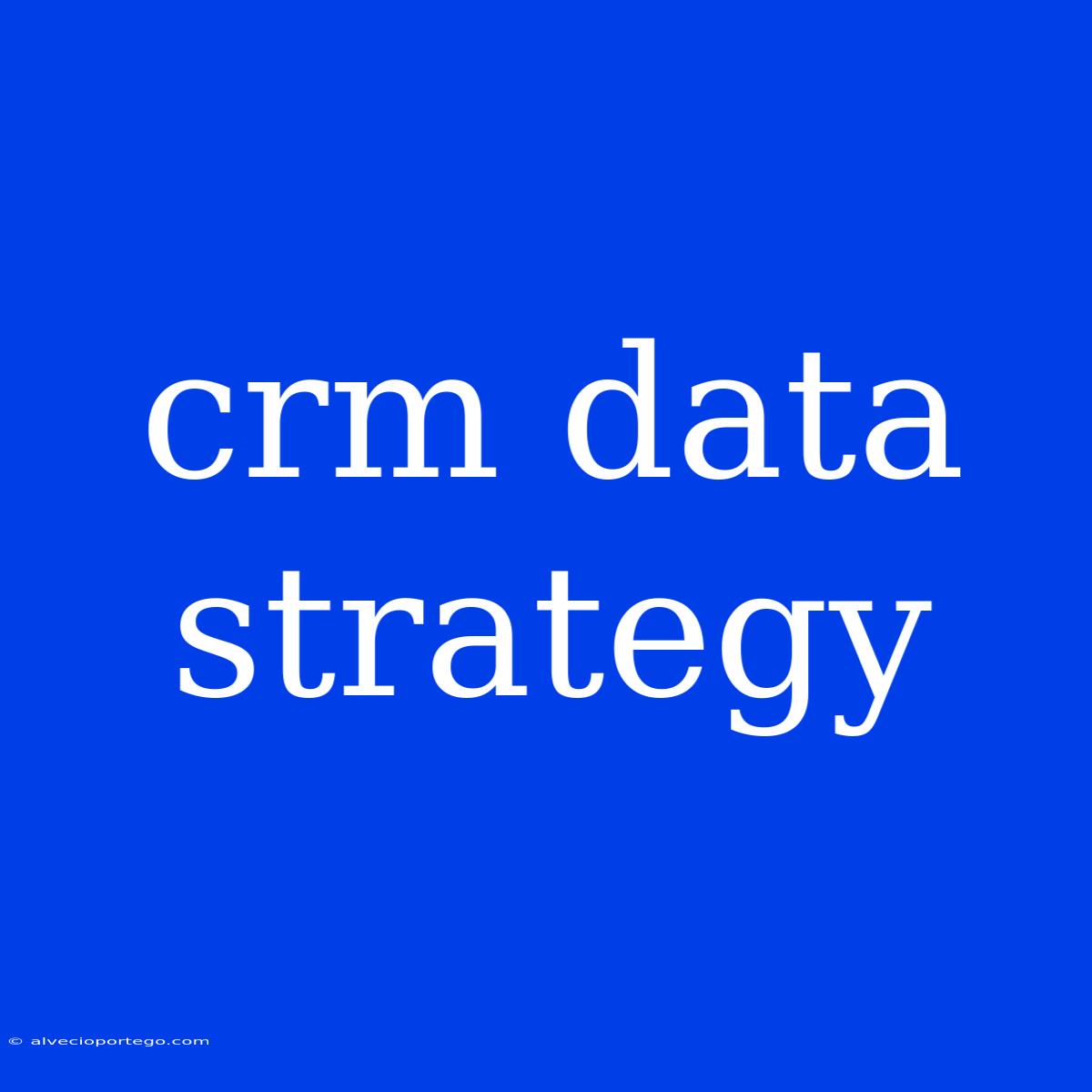CRM Data Strategy: The Foundation for Success
A successful CRM strategy is built on a solid foundation of data. Without a clear understanding of your customer data, your efforts to build relationships, personalize experiences, and drive sales will be hampered. A robust CRM data strategy ensures you're utilizing the right data, in the right way, at the right time.
What is CRM Data Strategy?
A CRM data strategy is a roadmap for how your business will collect, manage, and utilize customer data to achieve its goals. It outlines how you will:
- Define data needs: Identify the specific customer data you require for your business objectives. This could include demographics, purchase history, website activity, customer feedback, and more.
- Data collection: Establish clear methods for collecting data from various sources, including your website, social media, marketing campaigns, customer support interactions, and sales transactions.
- Data management: Implement processes for storing, cleaning, organizing, and ensuring the security and integrity of your data.
- Data analysis: Define the methods you'll use to extract insights from your data, such as segmentation, predictive analytics, and reporting.
- Data utilization: Outline how you'll use your insights to personalize interactions, improve customer service, target marketing campaigns, and optimize sales efforts.
Why is a CRM Data Strategy Important?
A well-defined CRM data strategy offers numerous benefits:
- Improved customer understanding: Gain a deeper understanding of your customers' needs, preferences, and behaviors.
- Personalized experiences: Deliver tailored interactions and offers based on customer data.
- Enhanced customer engagement: Build stronger relationships through relevant communications and targeted campaigns.
- Increased revenue: Drive sales and boost profitability by making data-driven decisions.
- Better customer service: Provide faster and more efficient support by utilizing customer information.
- Data-driven decision making: Leverage data to make informed decisions about your marketing, sales, and customer service strategies.
Key Elements of a Successful CRM Data Strategy:
- Define clear objectives: Start by identifying what you want to achieve with your CRM data.
- Identify data sources: Determine where you'll collect customer data from.
- Establish data governance: Define clear processes for managing data quality, security, and compliance.
- Invest in data analytics: Utilize tools and techniques to analyze your data and gain actionable insights.
- Implement data-driven marketing: Leverage data to personalize your marketing campaigns and improve their effectiveness.
- Foster data literacy: Empower your team with the knowledge and skills to understand and utilize customer data effectively.
- Regularly review and update: Continuously assess your CRM data strategy and make adjustments to ensure it remains aligned with your evolving business goals and customer needs.
Conclusion
A comprehensive CRM data strategy is critical for any business seeking to improve customer relationships and drive revenue. By carefully planning how you collect, manage, and utilize customer data, you can gain valuable insights, personalize interactions, and make data-driven decisions that contribute to your business success.

